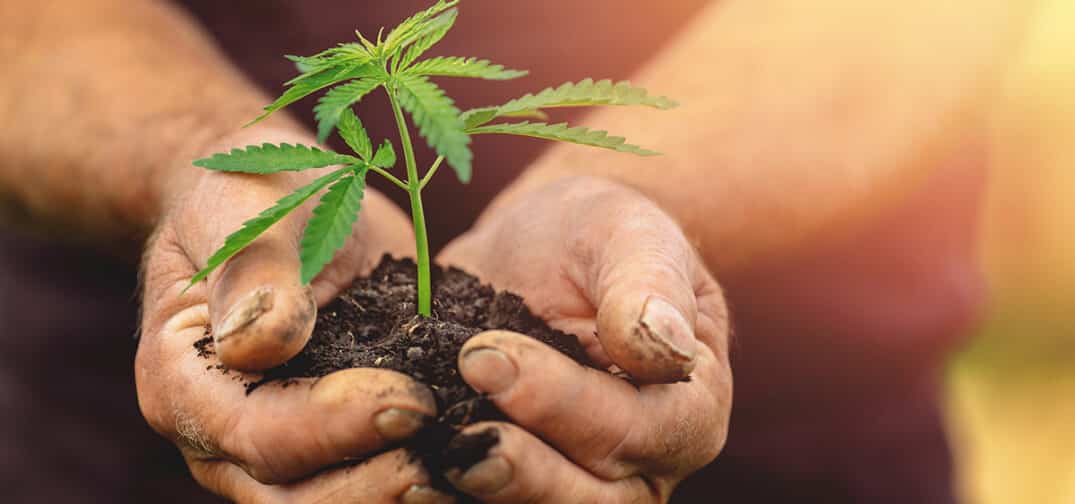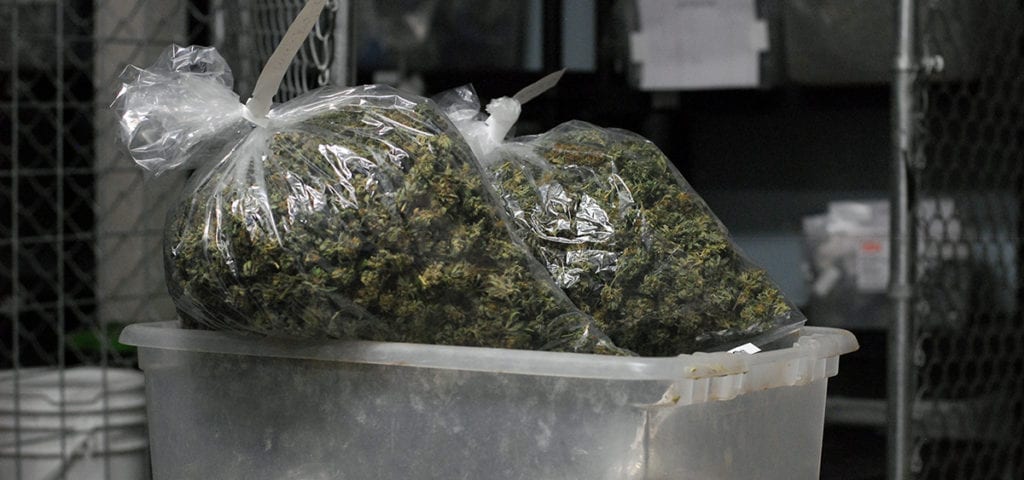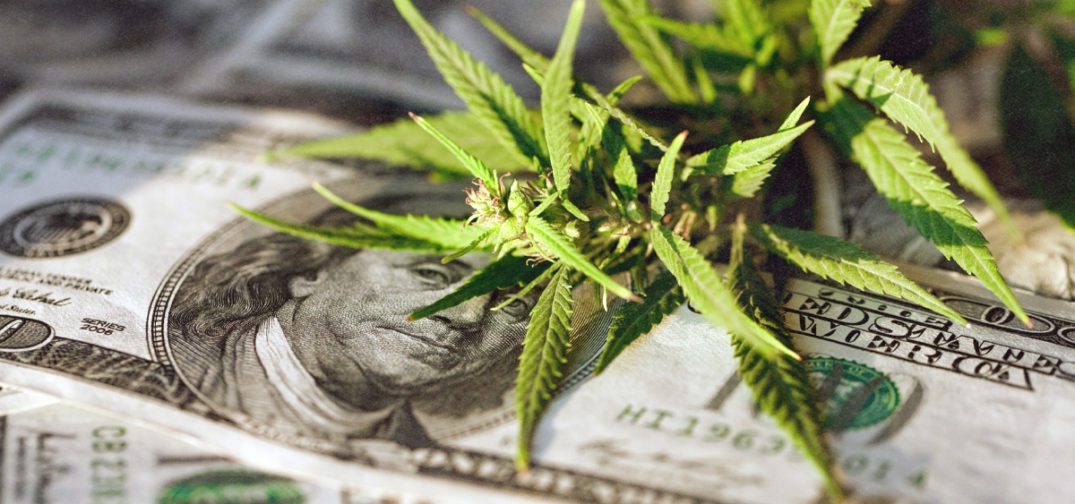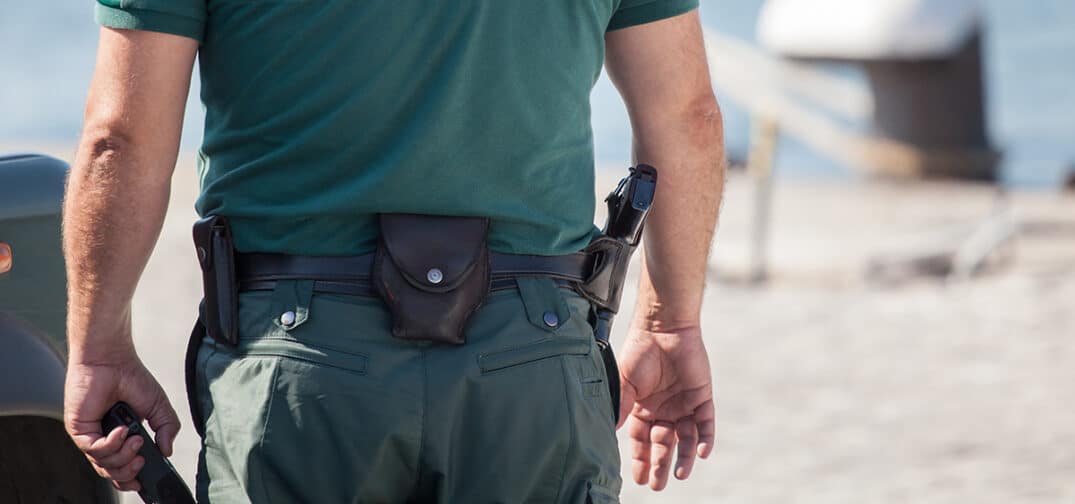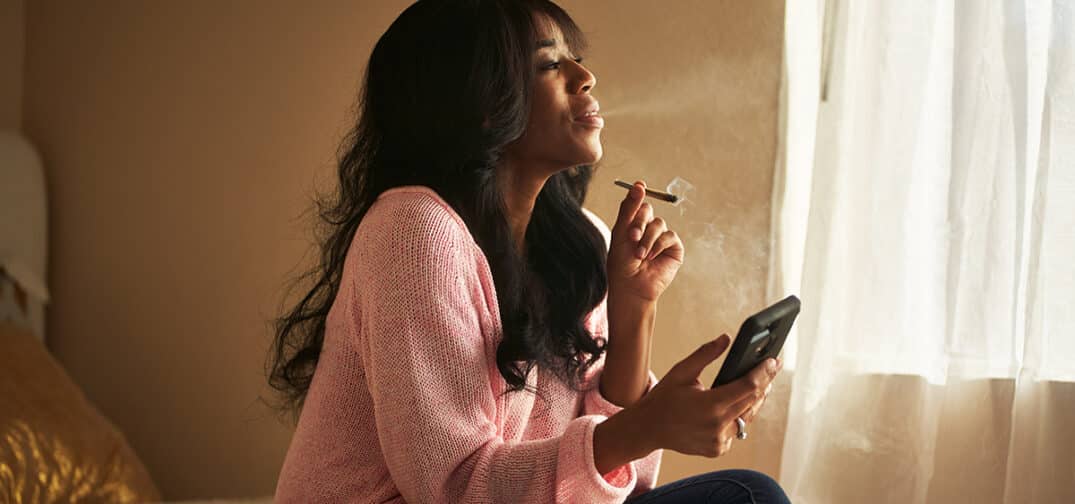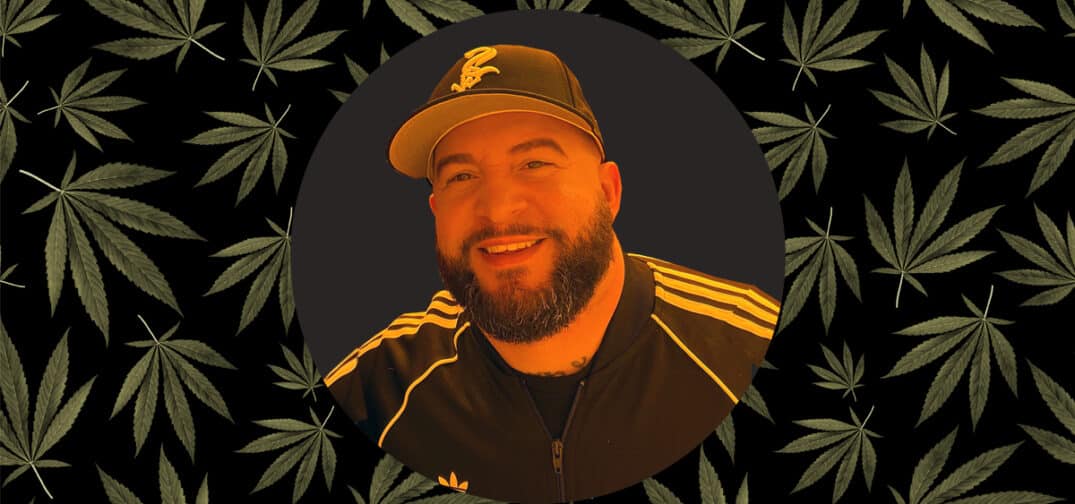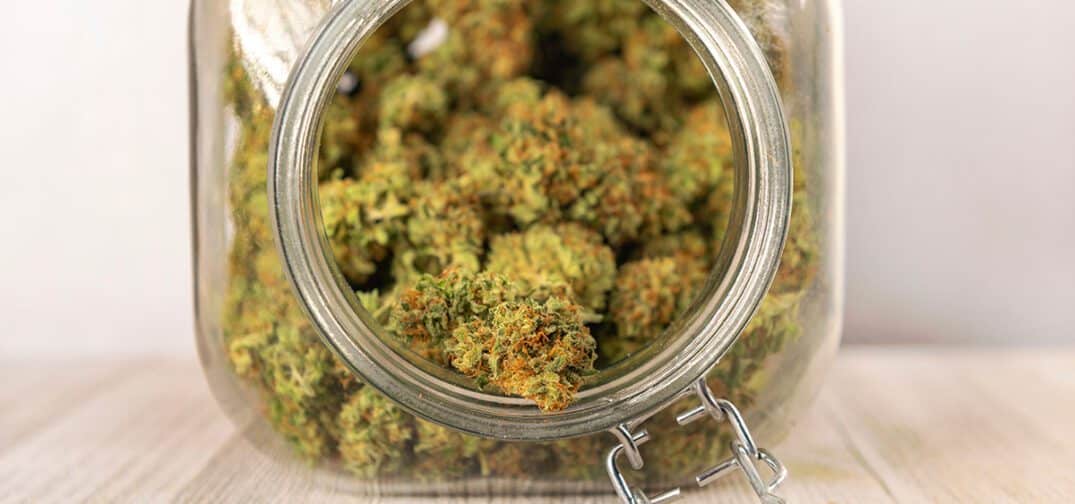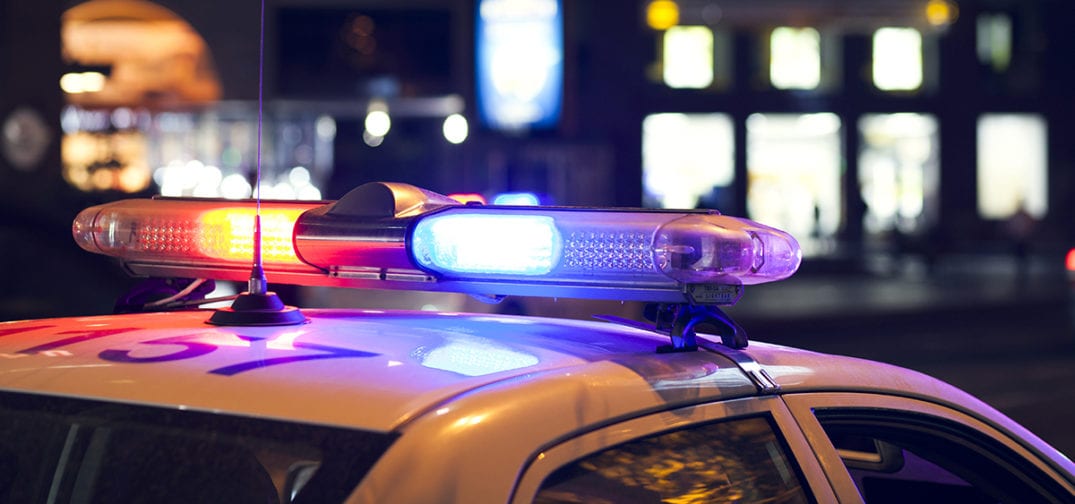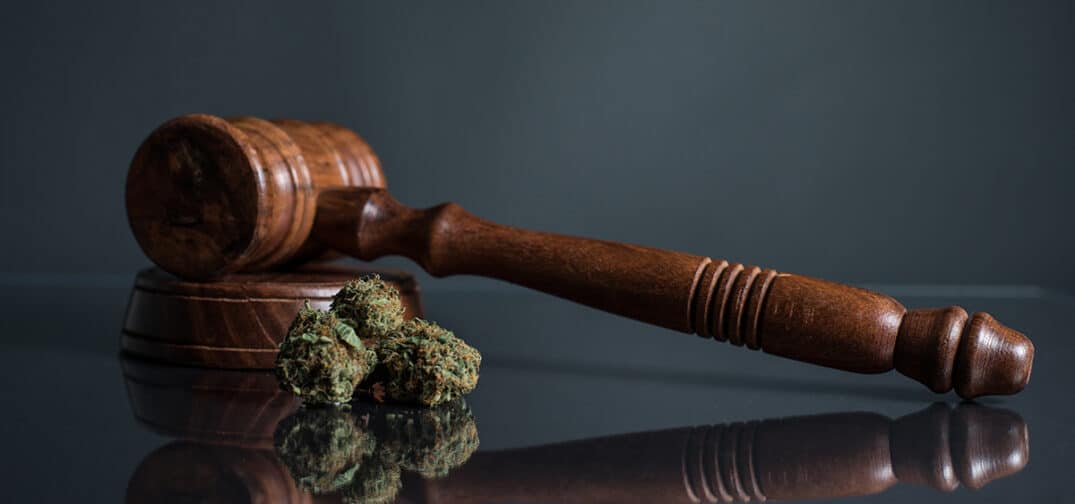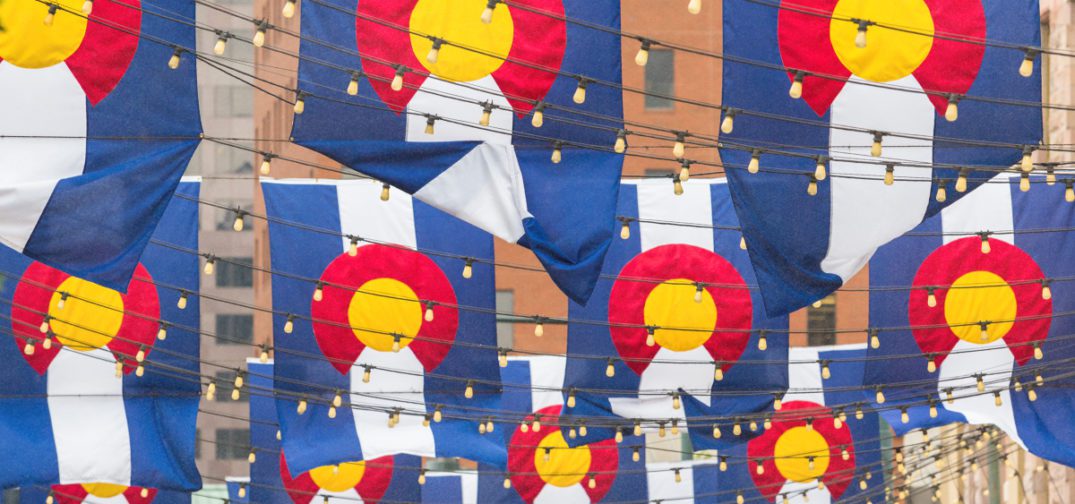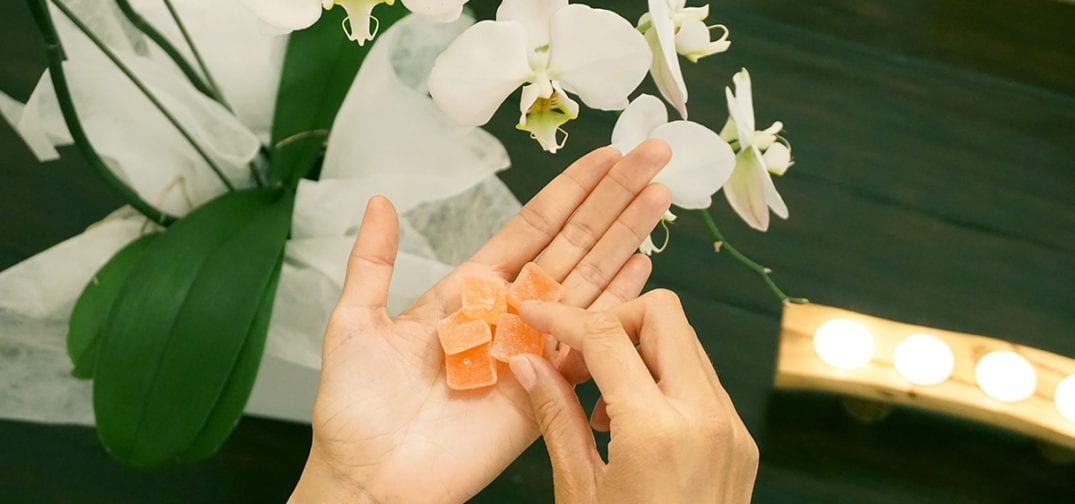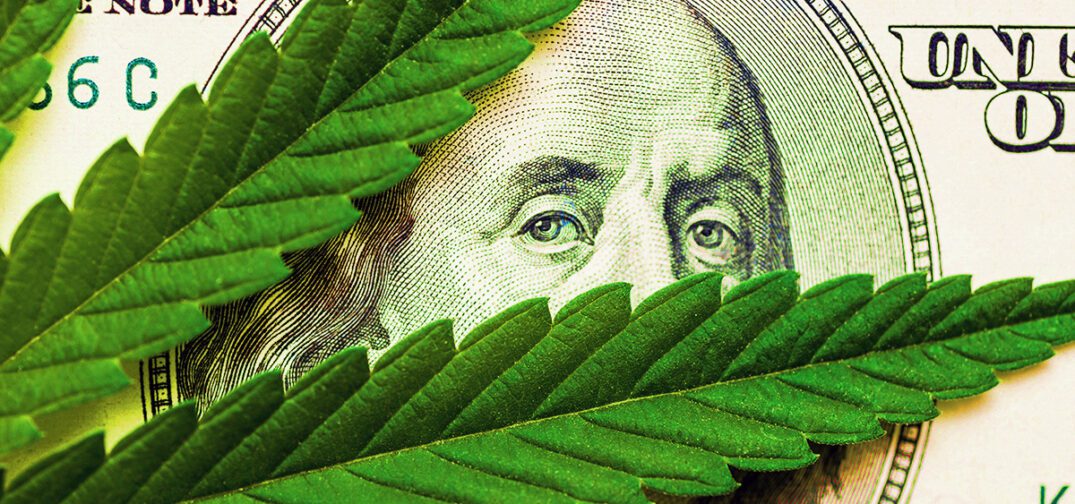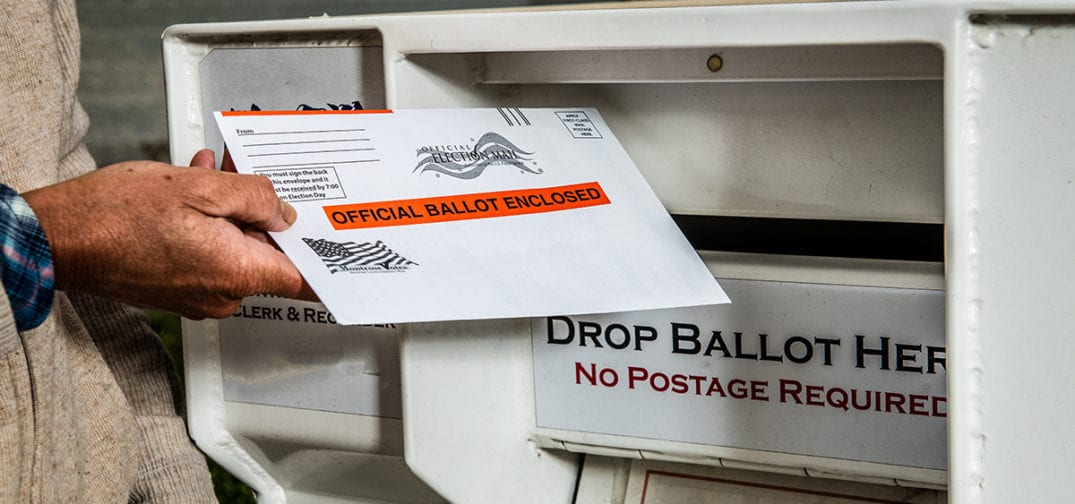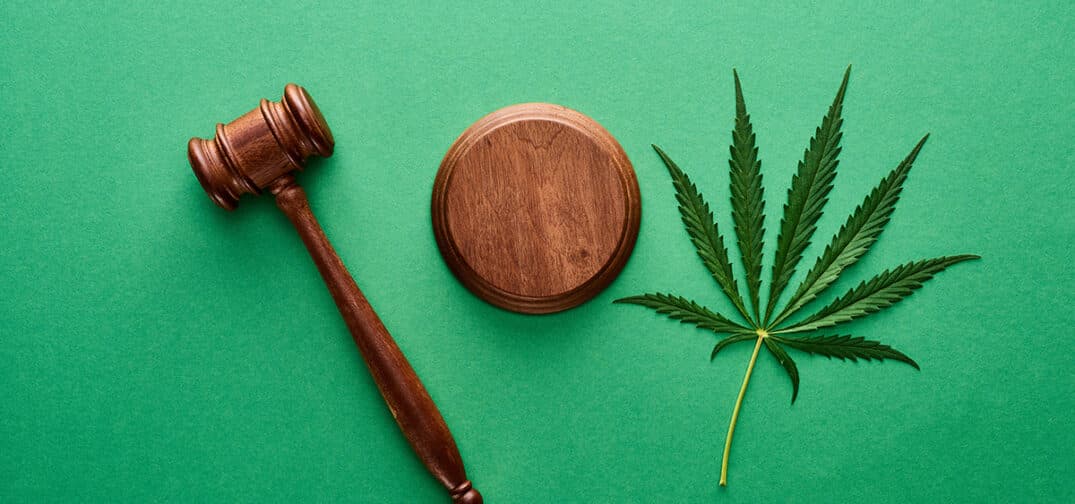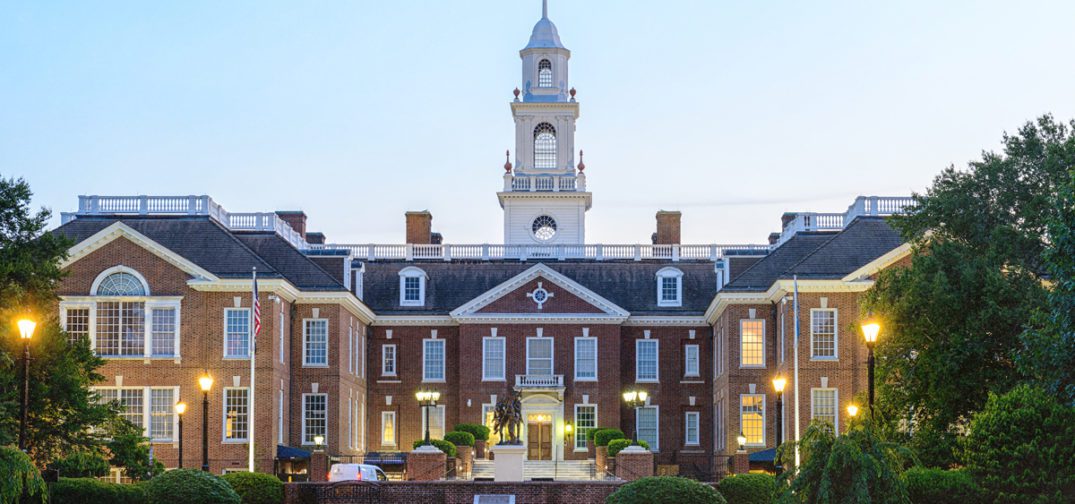The Ganjapreneur Podcast is back! In this episode, host TG Branfalt welcomes Jeremy Rivera, co-founder and CEO of Terp Bros, a dispensary in Astoria, Queens. Rivera, a beneficiary of New York’s Conditional Adult Use Retail Dispensary (CAURD) program, shares his journey from the legacy market and facing multiple cannabis convictions to launching his own licensed cannabis business. He goes into detail about the nuances of the CAURD program, the competitive landscape of New York’s cannabis market, and the distinctive approach Terp Bros has taken to distinguish itself amid a sea of dispensaries. He also provides first-hand insight into the entrepreneurial spirit driving New York’s developing legal cannabis industry and the ongoing efforts to rectify past injustices. Listen to the full episode below, or scroll down for the transcript!
Listen to the episode:
Read the transcript:
Editor’s note: this transcript was generated automatically and may contain typos.
Commercial (00:03):
The Ganjapreneur Podcast is made possible by over 500 cannabis industry service providers in Ganjapreneur’s Cannabis Business Index. At some point, every plant touching brand experiences the stigma that many industries still have to toward cannabis going strong. Since 2015, our business index is the most comprehensive and frequently visited directory for cannabis friendly services on the internet, saving you the time and hassle of sifting through uninformed and unwelcoming providers with categories for everything from business financing to extraction equipment to interior designers and public relations. You’ll find every kind of specialist and business service you could ever need. Check out the business index today at ganjapreneur.com/businesses.
TG Branfalt (00:52):
Hey there, I’m your host, TG Branfalt, and this is the Ganjapreneur.com podcast where we try to bring you actionable information and normalized cannabis through the stories of entrepreneurs, activists, and industry stakeholders. Today I am delighted to be joined by Jeremy Rivera is the co-founder and CEO of Terp Bros in Astoria, Queens, New York. Rivera is a conditional adult use retail dispensary or CAURD license holder and Terp Bros’ mission is to serve as a locale for the unique and memorable learning and experiences. Hey Jeremy, how are you doing this morning, man?
Jeremy Rivera (01:27):
Not too bad, bud. What’s going on?
TG Branfalt (01:29):
Dude, I’m real excited. You’re my first guest back. I’m happy to be talking with somebody in New York. The last time that I did this podcast, New York had gone legal, but we didn’t have the rollout of the market yet, so we have a lot to talk about. Before we get into all of that though, man, tell me about yourself. Tell me about your background, just your history with cannabis and how you ended up in the CAURD program,
Jeremy Rivera (01:56):
The program. Alright. Well, I’m one of the owners of Tur Bros. Cannabis Dispensary and Astoria in New York. Obviously because of New York’s parameters to get a license, some justice involved. I spent a lot of my teenage years as a gang member, Crip Street gang. Between 19 and 30. I spent most of those years in and out of prison. I have three state bids and a juvenile bid that I did when I was 30 2018. I came home, I had made a decision that I didn’t really want to continue living the life of wasting away in and out of prison. So I got into construction. I tried to maximize the space there and I got into construction safety. I became an authorized ocean instructor, a New York City Department of Buildings compliance officer and a nationally certified construction health and safety technician, all of which I was denied for and I had to appeal.
(02:52):
I actually set precedent for people with convictions to be able to get these licenses. And I was doing that from about, well, 2018 when I got home, I started my own business also and I was doing that up until about 2021, 2022 when the CAURD program was released. And I didn’t really know much about the CAURD program only because I had no real intention of getting back into selling drugs. And some of my background with cannabis is just like everybody else who was on the streets. You had some homies out in California, Oklahoma, Oregon, they’d send you 10 packs, 15 packs, and you’d distribute them throughout New York and with whatever your circle was. So I was dibbling dabbling in cannabis and even in prison, one of the big smokers is weed. You got somebody to bring you up the bag, you’re smoking a joint in the yard, it becomes a thing. So that’s really my experience just to go back and tell you what my experience in cannabis is. But again, in 2022 when the CAURD program was coming out, my best friend actually came to my house and he’s like, yo homie, I was just watching the news. We’re going to get a weed dispensary. And I genuinely thought he was crazy, bro. I am like, there are no way that New York out of every state in the country is going to give convicted felons. People have been convicted of crimes, nonviolent drug crimes. I mean
TG Branfalt (04:17):
We have history of Rockefeller drug laws
Jeremy Rivera (04:19):
Of course with the early nineties into the mid and the two thousands with stop and frisk all the way into the two thousands. And as early as the Rockefeller in the nineties, there’s no way New York State was going to allow such a thing to happen. But as I dove a little more into it and started researching it, they had two main criteria. You had to be convicted of a cannabis conviction, a cannabis crime, and you had to have a small business positive for two years. And I have three state felonies in a juvenile conviction. Each one of my state prison bids had cannabis in the indictment. So I checked that box off the jump and like I said, when I came home, I made the conscious decision to change my life. So around 2019, 20, I started JA Building Consultants, which was a consulting firm that I worked with insurance companies and I audited job sites. So that checked that box off. Boom, we got with a good lawyer, we who from MRTA law and we just started rocking and rolling. I really liked developed abilities that I didn’t know I had even this to be able to talk on podcasts and really tell the story. So it was amazing. It was a really cool journey and really journeys just beginning.
TG Branfalt (05:35):
So the licensing process was marred by lawsuits. There was at least one that stopped it and then another one that stopped it that dealt with veterans. And I can tell you from experience I was in very shortly after legalization, I was in New York City and there were illegal dispensaries operating sort of everywhere. And I know that you had taken that route, you wouldn’t have gotten a license ultimately. So the patients really paid off for a lot of people. Can you tell me about your experience obtaining a license in the state? What was it like for you?
Jeremy Rivera (06:14):
So you said it right there. The state’s program was hiccuped from the beginning. We had the verite lawsuit, which held five regions in injunction. We had the FII lawsuit, which cos Marte and Kbu and myself were a part of. We filed as interveners on that case and we were one of the three dispensaries that set the precedent for what the Honorable Judge Bryant was opening dispensaries for. But you said it, man, between the illicit dispensaries, we could have gone that route. And you know what, there are some illicit dispensaries that have gone that route and are still getting open. So that’s always like, fuck not, it’s been a hairy rollout. The CAURD program itself, we’ve never codified CAURD. So the CAURD program isn’t in the MRTA, the Marijuana Revenue Tax Act. It’s not in the MRTA. So it’s its sole independent entity. So that’s why it’s so subjective to having these lawsuits brought against ’em. We started this out with a Wish and a Dream and when they started awarding licenses back in November of 2023, I believe it was, no, 2024, sorry, up. My apologies. 2022. We didn’t get approved until 2023. So I left my job, I left working and doing my businesses to pursue this full time and I was
TG Branfalt (07:42):
Did you have to rent a building in the meantime? Just waiting for it?
Jeremy Rivera (07:45):
So no, because originally the parameters were different. Originally we had to take the DASNY program, the Dormitory Authority Services of New York. It was supposed to be a turnkey operation in the beginning. They were supposed to fit us out with a dispensary, find the location, we do the branding together because a lot of us in CAR didn’t have that experience in a mature market. We were individuals that were stepping into this. So the state had originally created a program through dasny where they were going to assist us find the location, work with fit out groups and all that. And as time progressed, everything changed. There were only supposed to be 150 licensees ended up now being 475 people or whatnot were licensed. We were originally supposed to work with the dormitory Authority services and now people like myself were able to get their own locations. So this program, and not to the fault of anyone’s specifically, it’s just been a very difficult and ever-changing landscape.
TG Branfalt (08:50):
Now obviously when people in the industry in New York, when we talk about this, I hear a lot that they don’t like those provisions that are in the CAURD provisions and that they say is what handicapped the rollout essentially, and what, what’s your take on those provisions? It doesn’t seem like in New York City with the dormitory authority, it really worked out that way. And it doesn’t seem like now that there’s four times as many licenses as they’ve anticipated, it didn’t really work out that way. So what do you think about the provisions and how it has rolled out?
Jeremy Rivera (09:32):
I think there should have been more protection for the CAURD program. I think it should have been codified by our elected officials a lot earlier on and now still codified to give protection to these individuals. New York has continued the rollout though they’ve continually, they’ve continued to accept applications and give out licenses. So the program is not stopping. The cannabis adult use program is not stopping, but card seems like to be forgotten about and continuously being forgotten about. And again, it’s no ill intent to anyone specifically. I think it’s just the way the cards rolled out. We have to give credit to New York and the officials that were behind the original MRTA for creating a program that focused on people who were disproportionately affected by the war on drugs. But the truth of the matter is, and
TG Branfalt (10:23):
New York City, I mean, yeah,
Jeremy Rivera (10:26):
I come from CDIA community disproportionately impacted by cannabis. I have multiple cannabis convictions. I, again, as a former gang member and a person who was in and out of prison and was in the streets, we’ve all been affected. Cannabis was that one reason to get you pulled out of a car and searched in hopes that they would be able to find something else. So we have to appreciate the individuals that focused on this and wanted to give us a chance. But the reality is, as we all know in other states, the big corporations really don’t give two fucks. Excuse my language, about individuals like us. And they have the finance and resources to keep on either pausing programs or filing lawsuits that pause programs to honestly, it’s like to break morale in individuals. And a lot of people who were in CAURD were hoping to get a build out. They didn’t have the finances or the resources to open up their own dispensary. So a lot of people who initially applied were only applying in hopes that they would be able to get that chance. So it’s a little difficult. It’s a rough program. It’s had its rough up and downs.
TG Branfalt (11:34):
Lemme ask you another question just do you know if, I know that Holle shortly after she took off, pardoned a whole lot of cannabis convictions. Are you a person that’s included in that sort
Jeremy Rivera (11:47):
Of social justice? No, I wasn’t. No, I’m not familiar with the pardons that she did do. But I’m a three-time pre persistent drug offender, so I can only get what’s called a certificate of relief. I’ve actually been home last year. This year I actually make six years that I’m home from prison. Longest year, five years was the longest I ever been home in my life.
TG Branfalt (12:12):
Unbelievable story, man.
Jeremy Rivera (12:14):
Yeah. So this year I’m actually able to put in for what they call a certificate of relief. And it doesn’t sponge my record because I have so much on top of it, but it puts a little asterisk next to it and it just let’s the officials know if everybody looks at my record that I’m kind of reformed or I am reformed.
TG Branfalt (12:36):
So going back to the community that your shops in, I’m a guy who likes buildings. Can you tell me about the building itself that you’re in? Maybe what it used to be? What?
Jeremy Rivera (12:48):
So it’s a funny story. We’re in North Astoria, Queens Dip, Mars. So we’re across the street from a real famous Greek seafood restaurant. We’re also across the street from a real famous bakery called Martha’s.
TG Branfalt (13:02):
Good place for a dispensary.
Jeremy Rivera (13:04):
Yeah, exactly. Great place. So originally we were working with one of my partner’s friends, Danielle from Fresh Bases. She’s young like us in her thirties, was in the club scene early on. And then as she grew up and had her family, she developed into doing real estate and we hired her to find this locations and she gave us a list of 10. And out of that 10 we picked four or five we wanted to see, and this specific location wasn’t even on the list. We never picked it, check it out. So we go look at the other spots and we’re finishing. She’s like, Hey, I want to show you the place on 36 in Ditmars. You didn’t pick it, but I want to show it to you. So we go over and we look around and I’m like, yo, this is the spot. The problem is the landlord, older gentleman, he’s about 65.
(13:53):
His father had owned the building since the thirties and was a Greek woods craftman. So they had it as a cabinet place. They used to make handmade cabinets. No way. And this is the first time he was ever interested in renting it out to somebody that wasn’t in his family. So bro, when I tell you we had to jump through hoops and have to deal with this guy while we were building out, we were literally, we had to construction crews in here. He was standing here like a foreman. And he would stand here and be like, well, you know, have to change this and you have to change that. And he like, no way, yo. It was crazy to the point we were like, Nick, you got to go to Florida. You had a house in co. He like, yo Nick, you have to go down to Florida. But it, it’s a first floor storefront with apartments upstairs. And again, a story is very residential with small businesses. So all of the small businesses have residential attached to them. So my neighbors, they’re like, oh, we live downstairs from a dispensary. I’m like, it’s really cool. My neighbor next to us is a bar. The neighbor to the other side of us is a brick of an Italian pizzeria. So bro, it’s really cool. There’s not much architectural substance to the building, but there’s so much emotional substance to it. But I mean,
TG Branfalt (15:11):
I saw pictures of it. It’s got that dope awning on the front of it. You know what I’m saying? It’s got character.
Jeremy Rivera (15:16):
Yeah. When we did the design, it was actually my partner who came up with the whole design. We did two murals, one from a local Astoria artist and another from a, excuse me, another from a Colorado and Hawaii based artist. So even our construction, we did it small business from a guy in the neighborhood, our floors, we did small business. Everything in the dispensary, we outsourced to people in the community.
TG Branfalt (15:45):
It’s the way to do it, man. Really. It brings a dollar spent locally or earned locally two or spent locally. I don’t know how the phrase goes.
Jeremy Rivera (15:56):
I know it’s something
TG Branfalt (15:57):
Now. Something like that. Prior to licensing, I just mentioned earlier, New York was a hotspot for unlicensed dispensaries. Are they still proliferating? I mean, you had said earlier that they’re still out there and how are licensed operators competing?
Jeremy Rivera (16:18):
So we’ll start with the first part, right? Are they still proliferating and continuing to open up and that the truth is yes, just within maybe 500 feet of me, I have about five or six of them. So an average of about one for every a hundred feet. New York didn’t really, New York State didn’t create a program where there was a real ability to shut these stores down. Even the other day in the news we saw on the Upper West Side, an elected official had gone and shut a illegal dispensary down and decided the next day to do a press conference in front of the padlock dispensary. Illegal and much to her amazed when she got there, they were open again and operation they had clipped the lock, opened it up, and they were back in business. So if she’s supposed to show you what the temperament in New York City is, it’s like fuck you. We’re going to do what we want. How do we differentiate and how do we work is providing education and understanding of what legal cannabis brings health wise. I know we have to separate ourselves because we’re not medical distribute, we’re not medical dispensaries, but we always have to make sure that we’re understanding these illegal dispensaries are definitely being found. Lace, cannabis, there’s definitely fentanyl, cocaine, heroin being distributed sometimes out of these same places.
TG Branfalt (17:55):
Really?
Jeremy Rivera (17:56):
Yeah, no, it’s crazy. Just the other day there was a raid and they found traces of fentanyl in the cannabis. The NYPD released a statement. So what can we do is market as safe legal providers. We have to get into our communities and show them that we have reasonably priced product, good product, safe product that we can give them. It’s always just the education part of it. These illegal dispensaries aren’t going out and telling you what the fuck’s in the weed. They’re just selling it to you.
TG Branfalt (18:27):
I hadn’t heard that from New York City at all. So that’s super disconcerting. At the very least. Now, broader, aside from the illegal operators that you have to sort of compete with, New York City itself, I’m sure is going to be hyper competitive, just like it’s for any business that decides to open in the city. Do you take the same approach when trying to corner your part of that hyper competitive, sort of broader New York City market? Of
Jeremy Rivera (19:02):
Course, because eventually I don’t believe that the illegal dispensary is going to be here for much longer within the next couple of years. And as the program develops, I think the state will create a protocol in which they’re shutting them down. It’s just not happening fast enough. But when it does happen, there are going to be a lot more legal dispensaries and just like anything else is marketing right? And creating something that other dispensaries don’t have, which is your own personal vibe, your own personal feeling that you give the consumers when they walk in. We don’t have a bunch of screens. We have bud tenders that walk the floor. We talk to you, we introduce a lot of our returning customers know our bud tenders by name. We know our customers by first and last name. So it’s just
TG Branfalt (19:46):
Like you knew your boy back in the day. No,
Jeremy Rivera (19:47):
Exactly. We’re bringing back that feeling of cannabis. We don’t want to over commercialize it where it feels like you’re going to an Apple store, you’re going to some big corporate building. We want to normalize the fact of purchasing cannabis in your neighborhood from somebody you recognize and you feel like. So that’s going to continue to be our game plan as more dispensaries open up as being ter pros, giving back what people feel is the reason they come in and it’s comfortability and the coolness.
TG Branfalt (20:18):
Well, and on marketing too, New York has really strict marketing regulations. I have a small business, a record store, and I wanted to partner. It just so happens record store day is on four 20 and I wanted to partner with our local dispensary on something and he’s like, dude, I can’t do it. I can’t do that type of partnership advertising. So how are you doing marketing and advertising in a space where it’s not allowed?
Jeremy Rivera (20:45):
Well, it’s not that it’s not allowed. It’s very strict and there’s very strict guidelines on how to market, right? We have to make sure that 90% of our viewers are 21 and older. We can’t use certain colors or certain fonts. We can’t insinuate the use of cannabis, I believe we can’t use brands. We can’t have brands market with us because there’s no picking one over the other. You
TG Branfalt (21:11):
Can’t trademark your name.
Jeremy Rivera (21:13):
Well, you can trade. You see, again, there’s ways to do certain things. We’re in the process of trading marketing tur rows, not through cannabis, but as merchandising, because we sell hats, we sell shirts. There are ways to go about it. Even with marketing programmatic out of home search engine optimization, there’s ways to do it organically. And there are companies out there that are marketing that want to break into the cannabis space knowing that eventually this is either going to go to schedule three or BD schedule completely, and we’re going to be playing on the same field. So there are companies out there. It takes a lot of work and a lot of diligence to do your homework on what is legal and not legal, what’s in and not in the regulations, so that you can go to your marketing meetings and you can explain and or your marketing company can explain back to you if you don’t fully understand.
(22:02):
This is what it says, right? Regulations are like law. And when I was going in and out of prison fighting cases, you cite case law and if it isn’t exactly the way it is, that’s what causes mistrials and that’s what gets you. It’s exact regulations are exact. So you have to be able to use those regulations and get as far as you can without violating them. And there are ways to do it even with your record store. It’s not him marketing. It’s you marketing. There’s no regulations that says a record store can’t market for four 20. It’s a cannabis company that can’t. It’s the legal dispensary.
TG Branfalt (22:43):
It just seems ridiculous on its face. It’s
Jeremy Rivera (22:45):
Super ridiculous. And we hope eventually that it’s going to open up. But for now, if we want to stay in this competitive market, we have to learn how to play the words. We have to learn how to work it.
TG Branfalt (22:57):
How hands on are you day to day? Because you seem pretty like you’re just
Jeremy Rivera (23:03):
Like any other small business owner. I’m here, me and my partners are here. We have 14 shifts a week. One morning one night. We’re open seven days a week. And between myself and my other partners, we’re here every day. I’m here Monday through Friday from morning till evening. We are hands-on in all of our marketing meetings, all of our growth and expansion, all of our day-to-Day team meetings. But you have to be, if you want to be a successful small business, I can’t expect anyone else, especially only five months into an industry to care about this as much as I do, knowing how much I’ve already lost, this is more than just a business. This is reparations for so much pain that individuals like myself have been through having to be stopped and searched and ripped out a car, having to go to prison with cannabis on your indictment and living through these traumatic instances. This is reparations for cannabis users and we have to treat it in a respectful manner. This is a real business. This is a real industry. So bro, I’m here every day, no questions asked. I’m at the shop right now.
TG Branfalt (24:10):
I mean, when it goes to marketing too, I just want to ask about your name, because Turt bros, right? Terpenes are not something that’s often an experienced cannabis consumer might understand. So you have weed shop on a hundred feet down from you, and then you have this really unique name that I think speaks to the maturity of your business. So what’s in a name, man?
Jeremy Rivera (24:44):
So this was actually my partner who came up with the name. We originally opened the company under cush culture industry because again, we thought we needed, we thought it was going to be a das and we wanted to go with something like conservative. And as the program evolved, we had created an Instagram page where terp rows was the name. My partner came up with that name. And it’s funny you say that. A mature consumer may know what terpenes is and maybe not the immature consumer, but everybody understands once you explain to them what Terps are and what terpenes are, because it’s the first thing that every consumer does when they check weed, they look at it, they open it and they smell it. So it goes back to the educational purposes of what we’re trying to create here and opening up things that again, the natural consumer may not know but wants to because they do it on a regular habit basis. And then as again, time went on, we DBA TER rows and we are like, that’s who we are. This is the feel. And it’s cool that you picked up on it and I feel you. Not every consumer picks up on it and not every person does. I’m
TG Branfalt (25:50):
A TURP guy, man.
Jeremy Rivera (25:51):
I feel you. But once you explain it to them, they understand. And again, that adds on to the educational purpose that we’re trying to provide here. It’s like teaching somebody something new every day.
TG Branfalt (26:02):
Yeah, I’m sure you have people. Do you have people who come in and say, what the fuck is a Turkey?
Jeremy Rivera (26:08):
Yeah, absolutely. I had somebody tell me because I’m not really a sports fan, but I had somebody ask me if it’s like a college football team. It’s
TG Branfalt (26:17):
Maryland. Yeah, yeah,
Jeremy Rivera (26:18):
Maryland like the TURPs. I’m like,
TG Branfalt (26:20):
Bro, no, I’ll be watching ESPN. And they’ll be like, and the TURPs. And I’m like, the fuck the, what are we doing here? So what is the top selling category at your shop? Is it flour, concentrates, edibles, flour,
Jeremy Rivera (26:38):
Flour, hands down flour? We’re a flower shop. We have a great of eights from 25 all the way up to 60. We have something for everybody. We are a small shop, but we hold a lot of skews. And I know a lot of people who are going to watch this from the mature market is like you’re supposed to have two 50 and 300, but we have like 580 skews. We have a lot of flour. We have a lot of non-cannabis too. We have puffco, we have grab bongs, we have papers and shit. But we have, I’d say about right now, maybe 90 different SKUs of just flour. We’d like to give people an option that’s between eight quarters, half ounces, ounces. But we like to give every consumer a chance to purchase something that’s for them. I don’t think having limited quantities really helps people. I think people need a good choice. And especially if you have good bud tenders that are guiding them to find exactly what it is they’re looking for, you can definitely dial down a TER rows and find something for everybody.
TG Branfalt (27:44):
What do you look for in a bud tender?
Jeremy Rivera (27:47):
So we picked our bud tenders from the community, also from the cannabis New York City community. We want to have people that are, I want to say conures, but understand cannabis, understand terpenes, understand the difference between flowers, understand the cannabinoid systems and secondary cannabinoids, not just THC, so that they’re able to give the consumers a good piece for what they’re looking for, but also personable. We want a bud tender that has retail experience that knows how to sell, but can smile and has a good aura about them. One thing about all of our staff is we’re trying to create the next line of entrepreneurs in the business. So we want bud tenders that have goals. We want bud tenders that want to be owners of dispensaries or owners of cultivation or get into marketing or get into compliance or anything like that. We want to be building the next set of business owners in the industry. So it’s like a little bit of everything. Cannabis, you’re a good flow person. You got a good vibration, you smile. You know how to upsell. You know how to sell. You want to be something you have goals in your life. And if ter pros is the place for you, there’s so many people that come in and out of these doors that there’s a chance for you to fulfill your dreams by working in this store for your future.
TG Branfalt (29:12):
And do you look for people that may have maybe records themselves and
Jeremy Rivera (29:18):
All of our, yeah, I didn’t add that on, but all of our bud tenders either have a conviction or if not have a conviction, have been in a CDI community disproportionately impacted or come from a CD. I got butt tenders and fulfillment from Brownsville all the way to the South Bronx, some from Williamsburg. I got people from everywhere.
TG Branfalt (29:39):
Williamsburg is a little gentrified now.
Jeremy Rivera (29:41):
Yeah, now it’s gentrified.
TG Branfalt (29:43):
Yeah,
Jeremy Rivera (29:44):
They’re still like the south side. Still got some hood blocks to it.
TG Branfalt (29:49):
I want to go back to flower just for a second though. Why do you think flower’s still it? I mean, I was just talking about my buddy about this right before we caught on and I was like, man, I still get flour from my boy. But meter, dose, edibles, concentrates. I mean all that comes from the dispensary and I think that’s because of the age, right? I still got boys. But why do you think flour is still that number one selling?
Jeremy Rivera (30:21):
I think what it is is when you look at the evolution of the illegal dispensaries they put out of business, our boys who had the delivery routes they put out of business, those local dealers who you would call, I’ll be at yours in 45 minutes with two bags, they put that area out of business. But again, as cannabis evolved in New York, they started to see that these corner stores were not giving them product that was suitable for their health or suitable for consumption. So now people are driven to what they’re used to, which is a store type environment, but they’ll rather go legal and especially in a small community like this where it’s not a lot of tourist traffic, it’s not in Manhattan where a customer will come in once and you’ll never see them their whole life. They’re just buying a vape pen in, they’re walking through Manhattan and seeing sightseeing and smoking a vape. These people are buying a bag of weed. They’re going to their house packing a bowl of rolling a joint. They’re buying a pre-roll going next door to the bar and smoking a joint outside. So again, the illegal dispensaries put out business are homeboys who are having the routes. But now that these illegal dispensaries, the cloth is coming over and we’re really seeing what they’re doing. It’s driving the consumer back to legal dispensaries.
TG Branfalt (31:43):
I mean it’s super interesting just from a, now does it sort of deviate by age group for you? Are the younger kids sort of looking for one thing and then grandma’s looking for another thing?
Jeremy Rivera (31:54):
Absolutely. We have a common core demographic of 37 to 41 that’s male and female. We’re starting to see that 21 to 28 start to pick up now that new brands are coming to market and those more recognizable brands that have that marketing and that young feel about
TG Branfalt (32:15):
Them that are on
Jeremy Rivera (32:16):
TikTok one to 20. Yeah, it’s not even the TikTok, but they’re the ones that were like the seven tens and the cookies and all these brands are starting to come. They got boys is going to come to New York. They have brand recognition. The older demographic is looking, honestly, it’s like sleep products, right? They’re looking for edibles that put them to sleep. They’re looking for flour that puts him to sleep.
TG Branfalt (32:40):
Interesting. So
Jeremy Rivera (32:41):
The market is ever developing, and I think the whole demographics of who your consumer is today by three, four months is going to change because all these new brands are now dropping to the New York market.
TG Branfalt (32:54):
What surprised you most about the legal market are going legal yourself?
Jeremy Rivera (33:00):
How much bullshit comes along with it
TG Branfalt (33:03):
That surprises you? You’re talking bureaucracy in New York State bud,
Jeremy Rivera (33:07):
Bro. The taxes two 80 e, I believe it’s 4 71. All these tax codes, the marketing regulations, understanding the independent regulations just for New York state and then understanding cannabis is still federally illegal
TG Branfalt (33:24):
And the city’s got their own codes
Jeremy Rivera (33:26):
And then the city has its own code. That’s really what took me for the biggest loop. It’s that it’s so controlled that you part of what’s going to be the largest infrastructure in New York state. It’s going to bring some of the most money in every than any other infrastructure. But yet we’re so regulated, so heavily regulated and we can’t do anything, right? We would just with our accountant, and it’s like you start to add up the amount of taxes and you’re like 13 and seven plus eight, and then we filed as a C corp. But what most common dispensaries are you get taxed on your personal, you get taxed on your dividend, you get taxed on everything. So that was the most difficult process.
TG Branfalt (34:10):
Do you think that recently a proposed legislation that would get rid of the potency tax, do you think that that would help the dispensaries and the smaller operators?
Jeremy Rivera (34:24):
Well, it depends because if you get rid of the potency tax on one end, it still has to be placed on another end. They’re not just going to lose taxes. No,
TG Branfalt (34:33):
I think they were going to put a flat tax on wholesale.
Jeremy Rivera (34:36):
But what would be the flat tax you get from 13% to what, 23%? Because you want to be lower than any of the other legal East coast states are. I think the highest we are in maybe mass is 24, 20 6%. So what would hoku want to do? Give us a flat rate of 23. We’re at 13% now. We still have a 13% M RT tax that we give our consumer. Our customer gets a 13% tax. So you think, I think it’s not going to drive consumers to want to shop. It’s already hard enough paying 13% tax. Imagine giving a flat rate of 21, 23, 20, whatever it is. I think on the dispensaries end, it’s going to drive a lot of consumers into not wanting to buy legal.
TG Branfalt (35:21):
What do you think would be best to get some sort of normalcy going in this market just because of the illegal operations. There’s a lot of issues in New York’s market. Do you think there’s any sort of panacea or legislation or anything that would benefit
Jeremy Rivera (35:41):
On the largest descheduling right removal? So
TG Branfalt (35:45):
Federal reform.
Jeremy Rivera (35:46):
Federal reform, of course, right on interstate commerce, right? Interstate compact. Seeing if we can start shipping from state to state. California is in a rut. If New York is the next hot market and there’s already brands in California that are dying that have notoriety, why can’t we start shipping them from California to New York?
TG Branfalt (36:06):
I mean, Connecticut has no supply.
Jeremy Rivera (36:09):
Yeah. Oh yeah. And that of course, that interstate movement would help a lot of these East Coast states not only drive traffic, but also relieve the issues that the West Coast states are having. So there’s so much that we can do. It’s just, I guess not lining the pockets the way people want it to on the big end. So they’re not with it really.
TG Branfalt (36:30):
So what advice do you have for entrepreneurs looking to enter this space?
Jeremy Rivera (36:39):
Educate yourself on the history of legalization in cannabis and other states and in your state. The regulations and the market itself. Understand that the whole facade of you driving a Ferrari and you own a dispensary really isn’t true. If you talk to anybody who’s been in mature markets and understands how the cannabis industry truly is, knows you’re going to have to be like me working here every day. Me and my partners are here every day, blood, sweat, and tears. It’s not easy. It’s heavily regulated. Gets back into understanding the regulations of your specific state and city and educating yourself, like just learning your consumer learning, sales, learning business, learning retail, being a good people’s person. There is a lot that has to do with being successful in this industry. It’s not just one thing.
TG Branfalt (37:37):
And just to ask you, man, what drives you to sort of be in there five days a week of this industry, of what you do? What’s the passion?
Jeremy Rivera (37:52):
I told you I’m a three time predicate persistent drug offender, bro. I dropped out of high school in ninth grade. I have no formal education. I left construction safety to do this. I’m not going back to construction. So this is all I have. This is everything, all eggs in the basket. This is what we’re doing. I’m that type of intense person. I don’t have a college degree where if this fails, I can go back to an office or I’m going to go do something. I don’t play basketball, I don’t rap. I don’t play sports, I don’t play football. I don’t do none of that shit. This is all I have. And because of that, and because I have a family that I need to support, I have a wife and beautiful children, I have a dream and a goal. This is what it is. This is what my focus is. And again, goes back to your earlier question before this. You need to focus on that. You need to focus in cannabis if you want to be successful the way I am. Because if you’re not focused and you’re not giving this a hundred percent, you’re not going to get a hundred percent out of it. So you have to be like laser vision all day every day. I saturate myself in legal cannabis, I’m all in on this.
TG Branfalt (39:07):
Bleeding it man. He’s fucking bleeding it.
Jeremy Rivera (39:10):
That’s a fact.
TG Branfalt (39:11):
My man. I cannot wait to my next trip down to the city to come and visit you and meet you and buy some flour. Where can people find out more about you and turp Bros. On the old internet?
Jeremy Rivera (39:27):
So you can go to our website www.erpbrosnyc.com. So that’s terros nyc.com. You can also find us on Instagram, T-E-R-P-B-R os. Do Astoria, A-S-T-O-R-I-A. You got to type the whole thing out because we’re Shadow band. So if you type in just type, you got to literally type the whole thing. Because cannabis is so heavily regulated and marketing is so difficult that Meta doesn’t allow us to have cannabis brands on their platform. But we’re also located at 36 dash 10 Ditmars Boulevard in Astoria, New York. So that’s Dip Mars Boulevard between 36th and 37th, and that’s where you find us at.
TG Branfalt (40:12):
Well man, I really appreciate you coming on the show. My return after a couple of years away, Jeremy Rivera is the co-founder and CEO of Turf Rose in Astoria, Queens. And this has been the entrepreneur.com podcast. You can find more episodes of the podcast and podcast section of entrepreneur.com wherever you get your podcasts. On the website, you’ll find the latest cannabis news and cannabis jobs updated daily along with transcripts of this podcast. You can also download the entrepreneur.com at in iTunes and Google Play. This episode was engineered by Wayward Media. I’ve been your host, TG brand.
